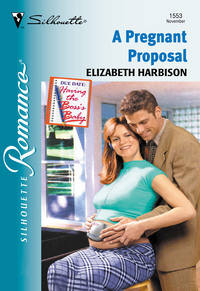
Полная версия
Annie And The Prince
The ticket collector frowned. “I’m afraid you’ll have to purchase a ticket, miss.”
“She said she has a ticket already,” the other man said, in a voice as rich and smooth as crème brûlée. His German was slightly accented, but Annie couldn’t tell what the inflection was.
“Policy, sir.” The little round face grew redder. “I don’t make the rules, I just enforce them.”
“That won’t be necessary,” the Adonis said. He hesitated for a moment, then reached for a small leather backpack at his feet. He nodded at Annie. “Please, allow me.” He pulled out several large-denomination bills.
“No, no, I can’t let you do that,” Annie objected, digging in her purse for the four hundred marks.
“But I insist.” Her unlikely hero gave a cold nod to the other man. “Please bring her bags in here.” He started to hand some bills to the man but Annie, who had been hurriedly counting out the four hundred, handed her money to him first. “Thank you anyway,” she said to the Adonis.
He held her eyes steadily, just a touch of a smile on his lips. “Certainly.”
The rail employee started to speak, but his mouth shut suddenly and he poked his head forward to study Annie’s knight more closely. “Wait a minute…Don’t tell me you’re—”
The man looked down suddenly, like a reflex. “Thank you so much for your help. That will be all.” With that dismissal, he looked away, heedless of the ticket collector’s stare.
The train worker left, scratching his head, and muttering, “Of course it’s not him, he wouldn’t be here,” without even a glance back at Annie.
Annie studied the man wondering who the conductor had thought her companion was. He kept his face slightly averted. Whoever it was that he looked like, he didn’t seem to want to talk about it. Probably some obscure European movie star. He certainly had the looks for it. More to the point, he was turning her insides to melted butter, and she’d better stop gawking at him.
“Thank you for your offer of help,” she said, and began to back toward the door. “I apologize for this intrusion on your privacy.”
He gave a shrug. “It’s no problem. I’m only sorry that man was such an unpleasant ambassador to my country. You are American?”
She stopped and nodded, wondering if he expected her to stay.
“Please,” he said, answering her unasked question with a wave of his hand. “Have a seat. I’d welcome the company, unless you have someplace else you have to be.”
“N-no. Thank you.” She sat, mesmerized by him.
“I wouldn’t want you to take home the impression that Kublenstein is unfriendly to strangers,” he said, with a devastating smile.
“I won’t, I absolutely won’t,” she said. There was a moment’s silence, so she added, “I really do have a ticket, or at least I did…”
“I believe you.”
But she wasn’t sure if he really believed her or not. “My name is Annie, by the way.” He didn’t answer right away, so she prodded him, “And you are…?”
He watched her for a moment, wearing an expression she couldn’t quite read. “You don’t know?” he asked after a long minute.
A tickle ran over her skin, like a cool breeze. It was a feeling she’d had before, always when something big was about to happen. She had that sense now, that his question held more significance than it appeared to. “No,” she said simply. “Should I?”
He smiled. “No, of course not. I simply thought I’d—I’d already said.” He shrugged, but looked suspiciously like the cat that ate the canary. He extended his hand to her. “I am Hans.”
She took his hand, smiling at the warmth of his touch. Joy’s premonition of her meeting someone came to mind again and she nearly laughed. Well, in a way, Joy had been right. “It’s nice to meet you.”
He kept his grasp on her hand, seemingly distracted. “Believe me,” he said, his smile broadening. “The pleasure is all mine.”
Suddenly she was overwhelmed by his handsomeness and the intensity with which he leveled his gaze at her. She looked down and cleared her throat. “I have to say, I’m not normally so clumsy…or so careless as to lose my ticket. It must be jet lag or something. It’s my first time in Europe.”
“Really?” He sounded genuinely surprised. “Your German is quite good.”
She felt a flush rise in her cheeks. “Thanks. My grandmother was German and she spoke it to me for the first five years of my life.” She was rambling. She always rambled when she was nervous. “I’ve wanted to come visit her homeland for as long as I can remember.”
“I see.” He nodded thoughtfully. “So why have you decided to visit now?”
“First, I finally had enough money saved up to come. I almost wasn’t able to do it at all, but then I got a job and…” She let her voice trail off, realizing she was starting to ramble again. “Anyway, here I am.”
“Here you are.” He continued to look at her in a way that made her squirm.
A short silence filled the car.
Annie had an inexplicable urge to fill it. “You know, I really don’t know how I lost my ticket. I put it with my passport in this secure zipper pouch right here—” she lifted her purse and unzipped the side “—so I could be very sure where they were. There must be a hole or something—oh.” She pulled the ticket out of the pocket and felt her face grow hot. “That’s strange. Why on earth wasn’t it there before?” Annie was seriously disconcerted. She’d searched the pocket thoroughly. It was almost like magic.
When she looked up, Hans was wearing a questioning expression.
“I know this looks strange, but I really didn’t do it on purpose.”
He looked amused. “I wouldn’t think so.”
An awkward silence stretched between them and after a few moments Annie asked, “So…are you stopping in Lassberg?”
“I am.” He nodded, eyeing her. His words sounded careful. “I live there.”
“How lucky for you. It’s a lovely countryside.”
“Yes, I agree.”
She looked out at a mountain ski run. “Do you do a lot of skiing, living here?”
He shook his head. “Unfortunately, I don’t get out that much. My…work…prevents it.”
She looked at him and smiled. “You’re out now.”
“I am, but it’s for business. Every month or so I take a trip like this into the countryside for a few days, but even then I don’t take much time for recreation.”
Annie would have given anything for a job that involved such a lovely perk as train trips across the Alps. “What is it you do?”
He hesitated, then said, “I work for the civil service. It’s not very interesting. What about you?” It was a slightly abrupt change of subject. “Are you going to be vacationing in Lassberg?”
“Well, for a couple of days. After that…” Perhaps because of her fatigue, Annie found herself wishing he’d ask her out. She immediately brought her fantasy into check. She didn’t even know the man. He was a stranger on a train. With that in mind, she didn’t go on to tell him she’d be taking a job as a private English tutor in Lassberg in a few days.
“After that…?” he prompted.
She hesitated. “I’m just going to vacation here for a couple of days.” She shrugged. “Then it’s back to work.”
But as Annie settled back into her seat in the first-class compartment, and looked at the handsome stranger across from her, it wasn’t her new job that made her smile. Instead, it was the thought that maybe Joy’s prediction of finding her own Prince Charming just might turn out to be true.
Chapter Two
Prince Ludwig Johann Ambrose George of Kublenstein, known to the public and the press as Prince Johann, and to a select few as Hans, leaned back against the stiff leather seat of the train to study the woman before him.
She was very attractive, though she was doing everything she could not to show it. Her glossy dark hair was pulled back into a tight braid in the back. He couldn’t help but imagine taking her hair out of the braid and running his fingers slowly through it. It would be soft, he knew, and probably smelled of flowers. He focused on her eyes, looking for the vivid blue he’d glimpsed there when her glasses had slipped off. They were intelligent eyes. That was what he liked about them. In fact, her face was nice altogether. Straight, unremarkable nose, strong chin, prettily curved mouth, smooth skin.
It was difficult to tell about her figure, since she wore a rather bulky sweater and baggy jeans, yet it didn’t matter. She was a pretty girl, there was no doubt in Hans’s mind, but she clearly didn’t know it.
Overall, though, she looked quite different from the women he dated, he thought idly. There was nothing ostentatious about her. Hers was a quiet, understated beauty that appealed to him on every level.
Her personality was another thing. She was more outspoken than he was used to, bolder. Very pleasant but there was a strength beneath the surface that gave him pause. After all, was an American—were all women raised in America so outspoken? The thought concerned him since he had just hired an American woman, sight unseen, to be the English teacher and caretaker for his two daughters.
Of course, the woman he’d hired—Anastasia Barimer—had impeccable references. There was considerable reassurance in that. She’d worked at the exclusive girls’ school that his late wife and mother-in-law had attended—one of the most prestigious schools in America. In hiring her, he’d fulfilled his late wife’s single wish for her daughters—that they wouldn’t be packed off to boarding school thousands of miles from home as she had been. Though there had been a lot of distance between Hans and Marie, physically and emotionally, he had enough respect for her to comply with the simple wish she had had for their daughters’ education.
Pendleton School for Girls had a lot of respect for Marie, too, and he knew they would never send someone unsuitable. Yes, he reassured himself, he’d done the right thing by hiring an American for his daughters.
And for the future of the monarchy. His people wanted to further international relations. He had several ideas of how to do so, but it would also be a good idea for his daughters to begin learning English from a native. They’d had some lessons, of course, from Frau Markham, but her knowledge of the language was limited. The new teacher would be able to teach them all of the nuances of the language, the idioms, the colloquialisms, all of the things they’d need to know as ambassadors for their country. Truthfully, he could use the practice himself. His plan was that they would only speak English in the house while the teacher was there.
He’d planned it completely and saw little to no room for error. He only hoped she wouldn’t be as headstrong as this Annie seemed to be.
He also hoped she wouldn’t be as young. And as…appealing.
Not that it mattered. He hadn’t wanted Annie to stay and talk during the train ride because of her looks. He’d asked her because he thought she might have some interesting opinions on his country. The fact that this was her first time here made her an ideal person to get a fresh outlook on Kublenstein. That and the fact that she apparently didn’t recognize him.
He’d spent the last week traveling alone—without bodyguards and secretaries—living among his people, in small villages and towns, and listening to their concerns about their country. The one thing that had come up over and over again was the fact that Kublenstein wasn’t an international player. Most of the world hadn’t even heard of Kublenstein, and those who had regarded it as a quaint little throwback vacation spot. But the people of Kublenstein wanted a voice in the European Economic Community. They wanted to be a force in exports and have the respect of the world for their watchmaking and their chocolates, in particular.
After hearing all of that, and agreeing with it, Hans could hardly pass up the opportunity to talk with an open-minded foreigner.
“What is it you do in America?” he asked her, telling himself that his interest was purely clinical and that he was, effectively, gathering data for his interview. Information like the curve of her mouth when she spoke or the brightness that seemed to emanate from behind her eyes would have to be dismissed as irrelevant.
She paused and her chest rose gently as she took a breath. “School librarian.”
“Ah.” He nodded. For some reason it surprised him, though he didn’t know what he’d expected. “A librarian. So what made you decide to come to Kublenstein? Did the students at your school study it?”
She paused thoughtfully. “Well, some have heard the story about the little peasant girl who stopped the war for a day.” Legend had it that a little girl had found a wounded enemy soldier on her front porch during a World War I battle and had assisted him despite the pleas from both sides to return to the safety of her home. While she was out there, no shots were fired.”
“That’s just a myth.”
“Isn’t there a statue built to her in the town square?” Annie asked, reaching for her tour book.
“Yes, but the story is exaggerated.” He was troubled. “Is that all American students learn about Kublenstein?”
“Well…” She didn’t want to offend him, so she didn’t point out that it was very few students who even knew that much. “It’s a very small country.”
That attitude always annoyed him, even though it was true. “Smaller than some, yes, but bigger than others.”
“It’s more of an underrated place than small, I think,” Annie amended. “The only time I can remember any mention of Kublenstein at all was in a history class, and that was just a passing reference that had something to do with Switzerland’s neutrality. But I think it is a charming place.”
“Charming,” he repeated, rolling the word out as if to decide whether he liked it or not.
She pressed her lips together then looked at him seriously. “Oh, yes. Charm means a lot to me. I don’t visit a place because of how far apart the borders are, I go for what’s inside.”
He looked at her with interest. “And what do you think you’ll find inside Kublenstein?” He’d only known her briefly, but he already knew enough to realize such a question could be dangerous when posed to such an honest young woman.
She gave a wry laugh. “I really don’t know. But other places in Europe are bound to be loaded with tourists. Like Paris. I was just there and it was mobbed. But take a place like Lassberg, that you don’t hear much about, and you probably can have the place to yourself.”
He kept his reaction under tight control. He knew she didn’t mean to touch a nerve by pointing out the lack of tourists. “People do live here, you know.”
“Oh, I know. That’s what’s so exciting about it. You can visit and live among the people rather than a bunch of other tourists.” She looked at him with a question in her eyes. “Wouldn’t you rather keep the tourists out? I mean, as a native, wouldn’t you rather preserve your country’s natural charm than exploit it?”
He tightened his jaw and looked out the window. “Kublenstein, like every other European country, needs the revenues that tourism brings in. Without it, the charm you are so interested in would deteriorate.”
“Hmm. I hadn’t thought of it that way.” She looked out the window again. “It seems a shame.”
“It’s the way it is,” he said, under his breath. It wasn’t her that he was upset with, but the truth of what she said.
“I hope I haven’t offended you,” she said.
She was obviously sincere. “No, of course you haven’t. You were just being honest,” he said magnanimously. Though the news of how little-known Kublenstein was in America wasn’t good, she had told him something of what he needed to know about the American perception of his country.
“Anyway,” she went on. “The size of a place doesn’t make any difference when you consider that you’re trapped in your own head no matter where you are. I mean, even now, in this compartment on the train, I’m stretching my wings more than I ever have in my life.”
He couldn’t help but feel caught up by her enthusiasm. “That’s a good thing, yes?” For just a moment, he wished he could share the same feeling that she seemed to be experiencing.
She gave him a radiant smile, which made his chest tighten. “You know, as strange as it sounds, I feel great. Like something incredible is about to happen.”
It was. He could see it in her eyes. For just a moment, he almost felt it, too, but the feeling was soon replaced by the crashing loneliness that was more familiar to him. Not self-pity, just the solitary existence he’d grown used to over the years.
“This is such beautiful countryside,” she commented, bringing him out of his own thoughts.
He looked to see the familiar mountain peak where his palace was nestled. “Ah, yes,” he said, gesturing toward the window. He was almost home. A small thrill of relief went through him, as it always did. “Although, as you pointed out, it’s small.”
She looked at him and he saw she understood his implication completely. “I didn’t mean to touch a nerve.”
He didn’t like being read that easily. He pointed to the cathedral outside. “We’re coming to the Lassberg city limits now. That’s the Bonner Cathedral.”
She followed the line of his hand. “It looks like something from Hans Christian Andersen. Everything here does. I keep thinking that.”
He’d always taken great pride in the beauty of his country, and it pleased him no end to see the admiration in her eyes, despite what she’d said earlier. It had been a long time since he’d seen someone look at his land with the kind of awe he thought it deserved.
The fact that she did warmed his heart and his feelings toward her.
“No wonder so many fairy tales were written around here,” she said wistfully, looking, for a moment, with such longing that he wondered what was in her heart. She answered the unasked question. “This looks just like the kind of land where people could live happily ever after.”
He gave a brief nod. “Yes. Some people, I suppose.” Foolish, romantic people.
She laughed and stretched her arms out over her head for a moment, saying, “I hope more than just some.”
Expectation shone in her eyes. He spoke before he thought. “I’m quite certain you would, if you stayed,” he reassured her, then stopped, startled by his own feelings. Why had he said that? How silly to be carried away by her ebullience that way.
She met his eyes, and for just an instant they shared some undefinable exchange.
“That is, I believe you’ll like it here,” he said, trying to regain his footing. He had to remain detached, had to command respect. It had been drilled into him since birth. So why did he slip now? It had to be exhaustion because he couldn’t possibly feel as at ease with this woman as it seemed. “While you’re here. Most of our few tourists enjoy their visit.”
“I think I will,” she agreed, then yawned. “Sorry. Anyway, I already am. Enjoying your country, I mean. And I caught that ‘few tourists’ crack.”
He couldn’t help but smile back. Intelligent girl. He’d known her for not more than an hour, and she’d already raised just about every emotion in him. He could not remember ever having met someone so simultaneously exasperating and fascinating.
If she was staying longer, he might want to get to know her better. Just to figure out what it was about her that had him so…piqued.
Thank goodness she wasn’t staying.
“You know what’s interesting?” Annie said, stopping his wandering thoughts. “You strike me as a very solitary person. It surprises me that you actually want more tourism in your country.”
She’d pegged him. “My personal desires are not always commensurate with the needs of my country. When it comes to a choice between their needs versus my own, I have to honor my country over myself.”
Her eyebrows shot up. “Wow, you’re really patriotic.”
“I have to be. It’s my job.”
Annie clicked her tongue. “I know plenty of civil servants who don’t give a darn about anything but their paychecks.”
“Their work must not be very fulfilling then.”
“Is yours?” she asked, slicing right into the heart of the matter.
He considered her for a moment, then said, “I don’t think I know you well enough to answer that question.”
She looked a little bemused, but accepted his answer. “Okay. I don’t want to pry.” She didn’t leave it at that, though. He’d known her only an hour or so, but he already knew her well enough to know that it would have gone against her character to leave it at that. “But if I were to guess,” she went on, “I’d say it wasn’t.”
He looked at her. “Really.”
“I mean, if it was, you’d probably be glad to say so. People usually refuse to share their negative feelings but not their positive ones.”
He tried to remain impassive. “Interesting observation.”
She yawned again. “Not that I know you well enough to tell, of course.”
“No,” he said evenly. “You don’t.” Yet somehow he felt she did, or could very easily.
She splayed her arms. “Feel free to correct me on anything I get wrong here.”
He raised an eyebrow. “You sound like a journalist.”
“Or maybe I’m psychic.” She smiled, joking. “Does that frighten you?”
He waited, then answered honestly though with a slight smile. “More than you can imagine.”
She must have dozed for just a minute without realizing it because Annie suddenly found herself leaning against the window with Hans reading a newspaper in front of her. How long had she been out?
Thank goodness he wasn’t looking at her, because as she came around she had lingering daydream images of herself and Hans in unspeakable—but unforgettable—entanglements together. Yet the lingering feeling she had from the dreams was not of sexual fulfillment, but of emotional fulfillment. For just those brief few minutes that she had dreamed, Hans had been the answer to every ache and pain of loneliness that she’d ever felt.
Which was just how illogical dreams were, really, because while the man in front of her was the stuff of sexual dreams, he didn’t seem to have a single impulse for fun. And though he’d been kind to offer to help her, he wasn’t exactly a warm man.
But something in her said that he could be. That he needed someone to cover him and warm him and show him how to enjoy life and not just be all business all the time.
“Then again, you probably have a wife for that, don’t you?” she said under her breath.
He lowered the newspaper and looked at her in a way that made her feel she’d made a terrible mistake.
She straightened in her seat and resisted the urge to clap a hand over her mouth. Had he really heard that? What was he, bionic?
“I’m sorry, what did you say?” he asked.
She stumbled over her response. “I—I—I was, um, saying that I suppose your wife,” she searched frantically for something to say, “takes care of the children while you’re away.” It was a terrible improvisation, but it was too late to stop. “You did say you have children?”
He gave her a long look, then shook his head. “I didn’t, no.”
“Oh, my mistake then.” The train began to slow as it entered the outskirts of Lassberg. She took the opportunity to begin gathering her things.
“I do, though.”
“Do…?”
“Have children. But my wife died a few years ago.”
She looked up, surprised. “I’m sorry to hear that.”
He gave a small, unreadable, shrug.
“How old are your children?” she asked, careful not to tread on potentially painful territory.
A small light came into his dark eyes, like a match lit in a large dark room. “Very young. Both are under ten.”
Like the de la Fuenza children she was going to care for. She loved elementary school age, an age when they began to be interested in books and in the outside world. “It must be difficult raising them on your own.”
He splayed his arms. “I have a staff to help with that.”
“A staff. My goodness, that sounds so—so large. Is that common in Kublenstein?”
He was thoughtful. “More so than in America, I think. Do you not have nannies and governesses in America?”
“It’s very rare.”












